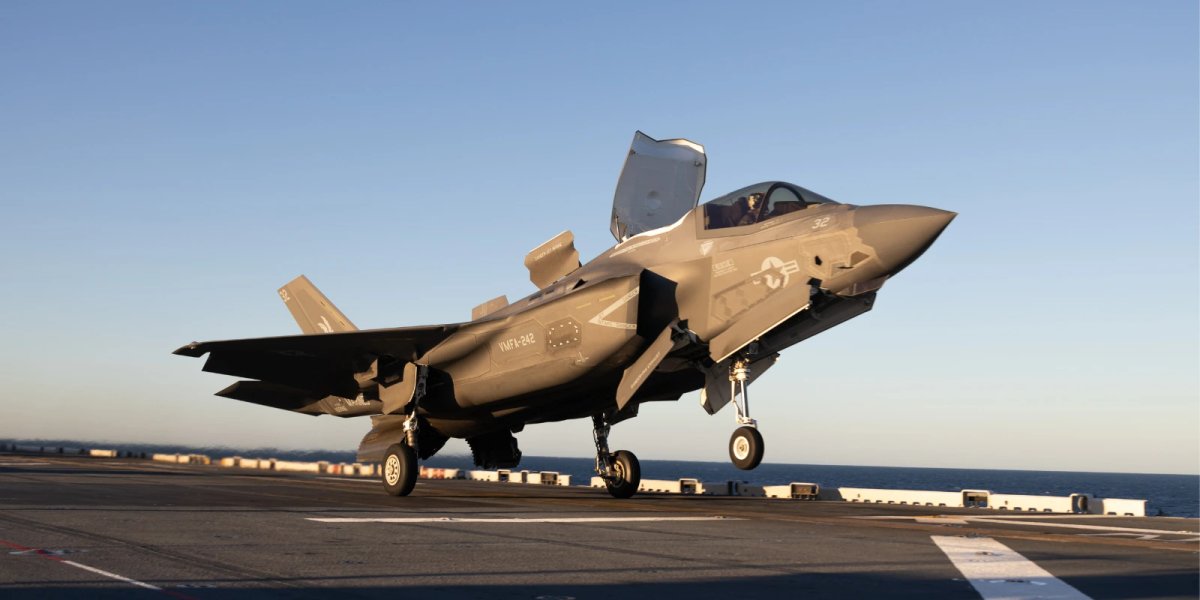U.S. DEPLOYS F-35 FIGHTERS TO COMBAT CARIBBEAN DRUG CARTELS

There has been much talk of late about increased American military involvement in the Caribbean in relation to President Trump’s repeated promises to bring military force to bear against drug cartels operating in the region.
Those promises came to a deadly head when a US missile strike killed 11 people on board a boat allegedly operated by Venezuela’s Tren de Aragua gang. While the necessity and legality of that action remain topics of much speculation in legal, government, and media worlds, the United States has further escalated its military operations in the Caribbean, deploying 10 F-35 Lightning II fighters to Puerto Rico to carry out further strikes against drug syndicates entwined with Venezuela.
This decision, coming so soon on the heels of the boat strike, stirred intense debate over legality, precedent, and the border between drug interdiction and military intervention.
U.S. Military Operations in the Caribbean Region
The jets, now deployed to a Puerto Rico airfield, will support operations against targets designated as operating on behalf of organizations designated by the Trump administration as “narco-terrorists" in the Caribbean Sea.
In addition to these latest-generation stealth fighters, the U.S. has already deployed seven warships, a nuclear-powered attack submarine, and more than 4,500 Sailors and Marines to southern Caribbean waters.
Venezuelan Government Reaction to U.S. Military Presence
In the aftermath of the missile strike, the Venezuelan government responded with a mix of outrage, provocation, and denials of the U.S. framing.
President Nicolás Maduro condemned the military buildup as an infringement on sovereignty and asserted that his nation has “no tyranny, no dictatorship.”
Additionally, Venezuelan F-16 fighter jets buzzed the USS Jason Dunham, which the Pentagon labeled a “highly provocative” act, before Maduro’s government went on to claim the sinking of the vessel never happened in the first place.
Furthermore, President Trump warned that any Venezuelan aircraft interfering with U.S. naval operations could be “shot down.”
White House officials assert the deployments serve to dismantle powerful drug cartels, such as the aforementioned Tren de Aragua, and to stop illegal narcotics from entering U.S. streets. Yet some complex legal and ethical questions have already arisen, mostly regarding what legal mandate authorizes U.S. leaders to strike non-state actors outside declared warzones.
Critics of the strike and jet deployment argue that Congress has not authorized such military interventions in Latin America. On top of that, specific details of who exactly was on board the sunken vessel, what drugs it may have contained, and whether the boat posed direct danger to American citizens or interests are still murky.
In fact, recent reports seem to suggest the boat had already turned around and away from US waters when the strike occurred.
Purpose of U.S. F-35 Fighter Jet Deployment in Caribbean
The political stakes are, to say the least, high. Secretary of State Marco Rubio, a long-time critic of Maduro, has described the escalation as a culmination of his years of advocacy for confronting Venezuela, while President Trump has framed the effort as part of his pledge to curb drug trafficking, likening overdose deaths to wartime casualties and vowing uncompromising force.
As tensions mount, the military buildup raises the risk of regional backlash, diplomatic disputes, and possible precedent for cross-border strikes against criminal networks, leaving the international community to question whether the U.S. is waging a counter-narcotics campaign or laying the groundwork for a broader confrontation.
The deployment of F-35 jets to Puerto Rico and the accompanying military buildup across the Caribbean mark an unmistakable shift in U.S. counter-narcotics strategy.
What began as maritime interdictions is transforming into an offensive military operation seemingly unconstrained by political, legal, and diplomatic boundaries.
Whether this gambit succeeds in degrading cartel capabilities or, conversely, escalates into broader conflict or legal controversy, remains to be seen. What is clear is that through this action, Washington is signaling both its readiness to act directly and its willingness to push the legal and moral limits of what has long been a contested domain of American power.
Suggested reads:
Veteran & Military Affairs Correspondent
Paul Mooney
Marine Veteran
Paul D. Mooney is an award-winning writer, filmmaker, and former Marine Corps officer (2008–2012). He brings a unique perspective to military reportin...
Credentials
- Former Marine Corps Officer (2008-2012)
- Award-winning writer and filmmaker
- USGS Public Relations team member
- Science communications specialist
Expertise
SHARE:



